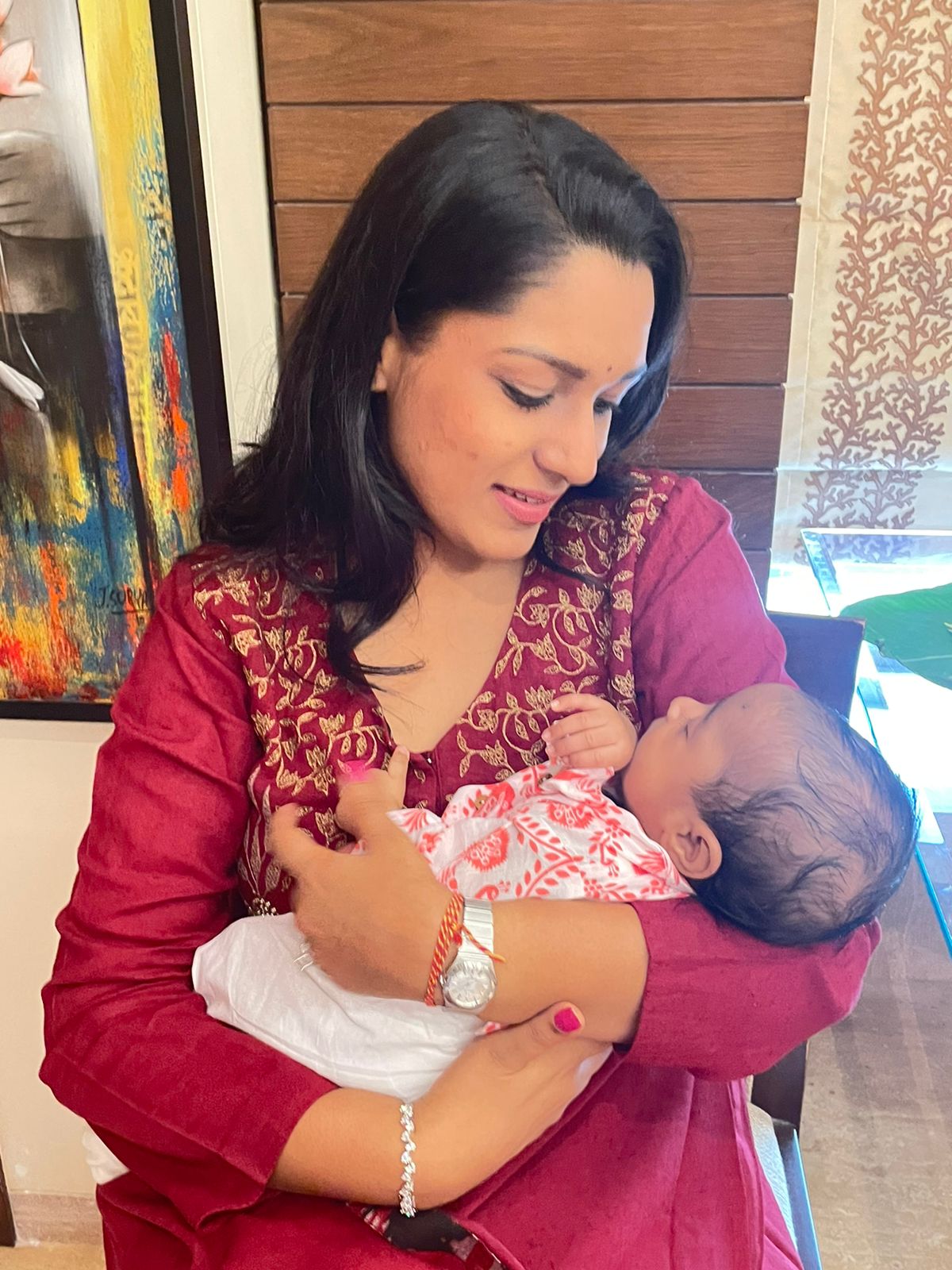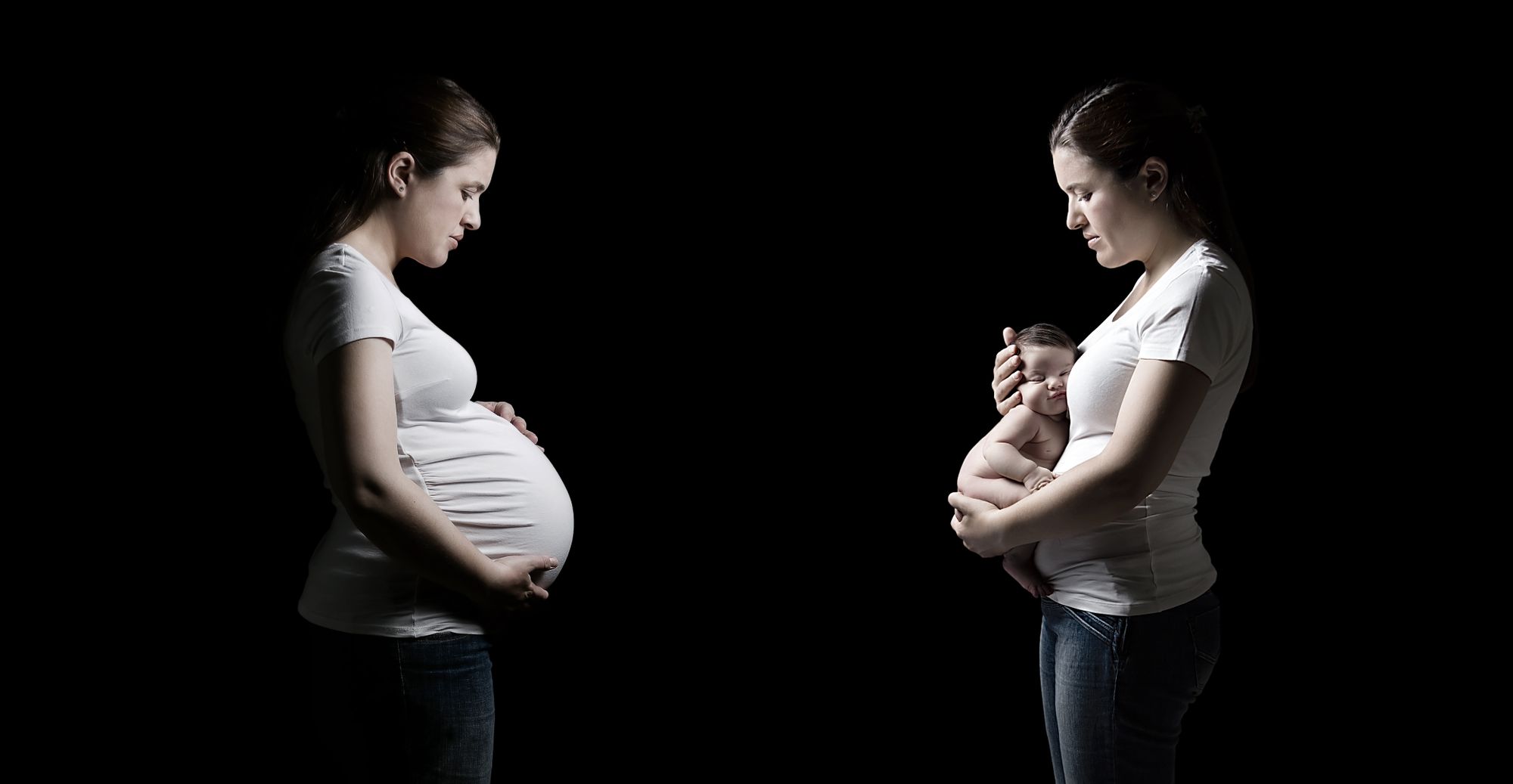It is amazing how pregnancy can have everyone around be exceptionally concerned, empathetic and comforting towards the to-be mother. But life after birth almost always sees a sudden shift, with a focus completely on the baby. We spoke to Dr Vanshika Gupta Adukia, Pregnancy, Childbirth and Lactation Specialist, Pelvic Floor Physiotherapist, Founder of Therhappy and who is also a new mom to tell us how life changes after giving birth.

Pregnancy looks a lot like:
‘How are you feeling?’
“Are you sleeping enough?’
‘Let me get you some food.’
‘You are glowing’
‘Are you hungry?’
While life after birth is more like:
‘How is the baby?’
‘Is the baby sleeping well?’
‘Is the baby eating enough?’
‘Such a cute baby’
‘You shouldn’t be eating for two!’
The newfound mother is more often than not barely acknowledged for her well-being, it’s almost like she does not exist anymore. Seeing her baby being showered with love and attention, would most definitely leave any mother with immense feelings of gratitude. But, at the same time to have all concern and care stripped off her during her most essential times of healing is definitely something that is truly uncalled for. On most occasions, the new mother with a newborn is under constant scrutiny.
Her feeding choices for the baby, her own food choices to nourish herself, the choices she makes while caring for her newborn, her dilemma of resuming work or taking a couple of weeks more to tend to her little one, her ability to manage her home while learning to nurture the life she just birthed, her struggle to accept her postpartum body while she strives to understand every need of her baby- the list is endless and so are the curious minds that are waiting to add in their ‘well-wishing quick advice’ or ‘must practice’ mentions to the already overwhelmed new mother.
A new mother’s every action is often closely watched so as to primarily highlight its
repercussions on her baby. Little importance is given to understanding how the mother’s choices and actions could actually impact her overall wellbeing. A blink of the eye and talk change from the pregnant mother eating well for the baby growing in her womb to now the same well-wishers ‘wondering’ as to how much weight the new mother lost post-birth ‘on the table’. It does not end there- this follows impromptu suggestions to quickly start a weight loss program accompanied with a diet plan, else the baby weight would be impossible to shed and the mamma pooch a constant companion.
It is conveniently forgotten that the same mother’s body took 9 long months to nurture and nourish the new life she brought into the world. The belly that was once adored and cajoled for housing the baby, is suddenly looked down upon for stretch marks that freshly exist. Suggestions even pour in to consider laser or
cosmetic corrections to make amends at the earliest. Not many remember to check in with the new mother about her healing after her birthing experience, the shift in her life while dealing with postpartum blues or even depression- how can one be depressed during the happiest phase of their life? ‘You’re just a gorgeous baby! – they say, with no understanding of the hormonal shifts and changes that the body is going through coupled with lack of sleep and inundated exhaustion.
Studies reveal that for most mothers with newborns, sleep is limited to a bare minimum of one to three hours at night. A recent survey showed that new mothers may lose up to 133 nights worth of sleep in the first year after birth!
And even with this extreme sleep deprivation, new mothers are expected and therefore subtly pressured to do it all – the simple funda being to do things when the baby sleeps!
So, sleep when the baby sleeps, eat when the baby sleeps, workout when the baby sleeps, manage your house when the baby sleeps, you must have a profession too to pursue when the baby sleeps, social life too must be balanced when the baby sleeps, take out some time for yourself and take to a hobby in the hours that the baby sleeps. After all, the baby is believed to sleep enough for a new mother to be able to breeze through all of this. Stuck between the devil and the deep sea?
Of course, this applies to new mothers. After all, her feeding choices for her baby are the topic of discussion during every conversation held by those around her.
If she chooses to breastfeed, ask her to try giving the bottle or at least one formula ‘top feed’ at night to ensure the baby is truly full. If she chooses to formula feed, remind her breast is best and a final try towards breastfeeding is the least she can do for her child- once again reinstating the insecurity that she probably just managed to get under control. As fixated as it can get, ‘a crying baby is a hundred per cent a hungry one’. The biggest myth of them all but the easiest one to send any new mother down the road of self-doubt and self-loathing.
Another dreaded one comes in the form of the mode of birth. A caesarean section is believed to be the easy way out since seemingly no pain was felt and it all was over within minutes. The C-section stitches, catheter insertion, weaning anaesthesia and inability to easily manage bowel movements are considered a cakewalk.
While a vaginal birth is a ticket to bouncing back in no time. A ‘natural birth’ like it is often wrongly termed is linked to being able to go back to pre-pregnancy life in no time. A probable vaginal tear or episiotomy stitches, or even prodromal labor with prolonged pushing hours seem to be of less consequence to those commenting.
On average, pregnancy sees anything between 8-14 prenatal visits over a course of 9 months. In fact, during the last month of pregnancy, a pregnant mother has a prenatal visit every week until she gives birth!
However, the same does not hold true postpartum. Post-birth and following discharge from the healthcare centre, most postpartum follow-ups are scheduled as late as 6 to 8 weeks after giving birth. In case of a complicated birth or a Caesarean section perhaps a few days earlier. But a single checkup is often seen as a benchmark for the go-ahead signal to resume life back like the pre-pregnancy days.
Many times this postpartum visit is nonchalantly even skipped or postponed to a further date when the new mother would have more time at hand for herself.
The fourth trimester- not many know about it, but it is the first 12 weeks immediately after birth. A period that every new mother and newborn child will go through.
The first three trimesters of pregnancy are given the spotlight and immense care.
However, the fourth trimester which not only sees the birth of a newborn but also the birth of a mother often passes with the least attention, compassion and care towards the mother. Toughest of all the trimesters, with great physical and emotional changes; Life after birth is the beginning of a new journey where postpartum care of the mother could help her go a long way.
Follow @malinisgirltribe on Instagram for more content like this and download the Girl Tribe by MissMalini App to join our Mommy Life community.

